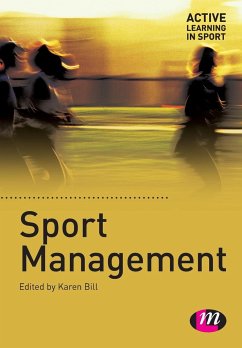
High Impact Teaching for Sport and Exercise Psychology Educators
Versandkostenfrei!
Versandfertig in 1-2 Wochen
173,99 €
inkl. MwSt.

PAYBACK Punkte
87 °P sammeln!
High Impact Teaching for Sport and Exercise Psychology Educators addresses the need for a resource on effective course design, assessment, content delivery, and classroom management that is specific to educators in the field of sport and exercise psychology and to working with the millennial learner. It provides discipline-specific ideas to improve teaching in higher education. The book provides an evidence-based guide of tried and tested teaching methods for teachers of sport and exercise psychology at all levels in all formats of education. Irrespective of the level and prior teaching experi...
High Impact Teaching for Sport and Exercise Psychology Educators addresses the need for a resource on effective course design, assessment, content delivery, and classroom management that is specific to educators in the field of sport and exercise psychology and to working with the millennial learner. It provides discipline-specific ideas to improve teaching in higher education. The book provides an evidence-based guide of tried and tested teaching methods for teachers of sport and exercise psychology at all levels in all formats of education. Irrespective of the level and prior teaching experience in sport and exercise psychology, this is a starting point for delivering significant learning experiences for students in this field of study. Second, it addresses the millennial learner and recommends future teaching and learning experiences in traditional, hybrid, and online formats. Finally, High Impact Teaching for Sport and Exercise Psychology Educators provides a positive approach to engaging students in an ongoing process of learning and involvement in the field of sport and exercise psychology. This book is intended for any educator in a 2- or 4-year institution of higher education who is or will be teaching courses at the undergraduate or graduate level in sport and exercise psychology as well as students and practitioners in the areas of sport and exercise psychology and physical education.














